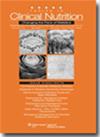大学生的食物不安全问题
IF 0.4
4区 医学
Q4 NUTRITION & DIETETICS
引用次数: 0
摘要
本研究采用混合方法,旨在确定一所中等规模私立大学中造成食物不安全的因素及其与食物不安全的关系。在半结构式访谈中(N = 23),学生们讨论了与食物不安全有关的社会和环境因素,以及与食物有关的时间、压力和技能等个人因素。我们开发了一份测量个人因素的简短问卷,并与美国农业部食品安全调查(N = 270)一起实施。在食物安全组和食物不安全组之间,与食物有关的时间、压力和技能存在显著差异(P < .01)。确定具体因素可以为针对校园的干预措施提供信息,以解决粮食不安全问题。本文章由计算机程序翻译,如有差异,请以英文原文为准。
Food Insecurity in College Students
Using a mixed-methods approach, the purpose of this study was to identify contributing factors and their relationship to food insecurity at a midsize, private university. During semistructured interviews (N = 23), students discussed social and environmental factors related to food insecurity, as well as the individual factors of food-related time, stress, and skill. A short questionnaire measuring the individual factors was developed and implemented with the US Department of Agriculture food security survey (N = 270). Between the food secure and insecure groups, there were significant differences in relation to food-related time, stress, and skill (P < .01). Identifying specific factors can inform campus-specific interventions to address food insecurity.
求助全文
通过发布文献求助,成功后即可免费获取论文全文。
去求助
来源期刊

Topics in Clinical Nutrition
NUTRITION & DIETETICS-
CiteScore
0.90
自引率
20.00%
发文量
34
期刊介绍:
Topics in Clinical Nutrition (TICN) is a peer-reviewed, quarterly journal designed as a resource for the continuing education and clinical practice of dietitians and nutritionists. Each issue addresses topics of interest primarily to dietitians and nutritionists, students and interns in professional training programs and other health care personnel involved in the nutritional care of patients. Articles include translational research reports (work that applies new knowledge to practical effect), practice projects, evidence-based literature reviews, case studies and book reviews, and articles that highlight education theory and applied research which share the tools and techniques of nutrition and dietetics education.
 求助内容:
求助内容: 应助结果提醒方式:
应助结果提醒方式:


